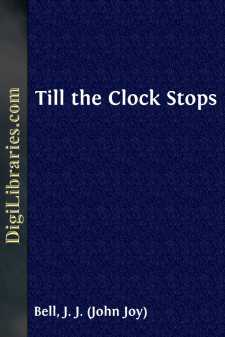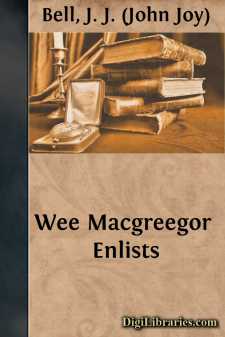Categories
- Antiques & Collectibles 13
- Architecture 36
- Art 48
- Bibles 22
- Biography & Autobiography 813
- Body, Mind & Spirit 142
- Business & Economics 28
- Children's Books 17
- Children's Fiction 14
- Computers 4
- Cooking 94
- Crafts & Hobbies 4
- Drama 346
- Education 46
- Family & Relationships 57
- Fiction 11829
- Games 19
- Gardening 17
- Health & Fitness 34
- History 1377
- House & Home 1
- Humor 147
- Juvenile Fiction 1873
- Juvenile Nonfiction 202
- Language Arts & Disciplines 88
- Law 16
- Literary Collections 686
- Literary Criticism 179
- Mathematics 13
- Medical 41
- Music 40
- Nature 179
- Non-Classifiable 1768
- Performing Arts 7
- Periodicals 1453
- Philosophy 64
- Photography 2
- Poetry 896
- Political Science 203
- Psychology 42
- Reference 154
- Religion 513
- Science 126
- Self-Help 84
- Social Science 81
- Sports & Recreation 34
- Study Aids 3
- Technology & Engineering 59
- Transportation 23
- Travel 463
- True Crime 29
Till the Clock Stops
Description:
Excerpt
THE PROLOGUE
On a certain brilliant Spring morning in London's City the seed of the Story was lightly sown. Within the directors' room of the Aasvogel Syndicate, Manchester House, New Broad Street, was done and hidden away a deed, simple and commonplace, which in due season was fated to yield a weighty crop of consequences complex and extraordinary.
At the table, pen in hand, sat a young man, slight of build, but of fresh complexion, and attractive, eager countenance, neither definitely fair nor definitely dark. He was silently reading over a document engrossed on bluish hand-made folio; not a lengthy document—nineteen lines, to be precise. And he was reading very slowly and carefully, chiefly to oblige the man standing behind his chair.
This man, whose age might have been anything between forty and fifty, and whose colouring was dark and a trifle florid, would probably have evoked the epithet of "handsome" on the operatic stage, and in any city but London that of "distinguished." In London, however, you could hardly fail to find his like in one or other of the west-end restaurants about 8 p.m.
Francis Bullard, standing erect in the sunshine, a shade over-fed looking, but perfectly groomed in his regulation city garb, an enigmatic smile under his neat black moustache as he watched the reader, suggested nothing ugly or mean, nothing worse, indeed, than worldly prosperity and a frank enjoyment thereof. His well-kept fingers toyed with a little gold nugget depending from his watch chain—his only ornament.
The third man was seated in a capacious leather-covered, easy chair by the hearth. Leaning forward, he held his palms to the fire, though not near enough for them to have derived much warmth. He was extremely tall and thin. The head was long and rather narrow, the oval countenance had singularly refined features. The hair, once reddish, now almost grey, was parted in the middle and very smoothly brushed; the beard was clipped close to the cheeks and trimmed to a point. Bluish-grey eyes, deepset, gave an impression of weariness and sadness; indeed the whole face hinted at melancholy. Its attractive kindliness was marred by a certain furtiveness. He was as stylishly dressed as his co-director, Bullard, but in light grey tweed; and he wore a pearl of price on his tie and a fine diamond on his little finger. His name was Robert Lancaster, and no man ever started life with loftier ideals and cleaner intentions.
At last the young man at the table, with a brisk motion, dipped his pen.
"One moment, Alan," said Bullard, and touched a bell-button.
A couple of clerks entered.
"Rose and Ferguson, you will witness Mr. Alan Craig's signature. All right now, Alan!"
The young man dashed down his name and got up smiling.
Never was last will and testament more eagerly, more cheerfully signed.
The clerks performed their parts and retired.
Alan Craig seized Bullard's hand. "I'm more than obliged to you," he said heartily, "and to you, too, Mr. Lancaster." He darted over to the hearth....



